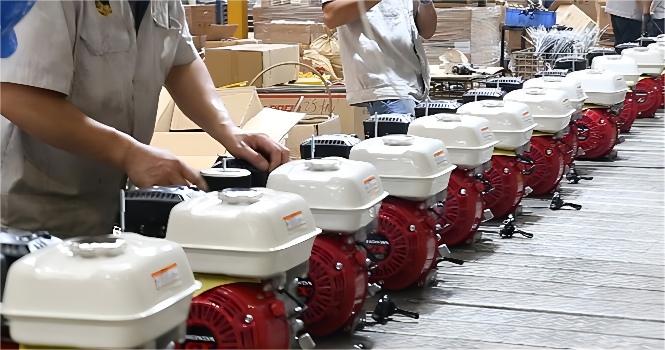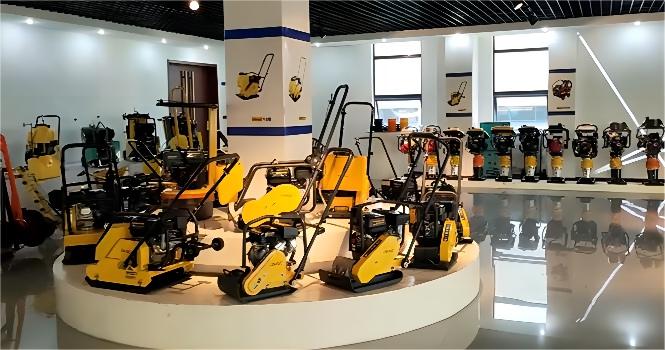Machine Compacteur PME-C80
Si vous êtes à la recherche d'un compacteur à plaques, nous pouvons vous aider à choisir la plaque de compactage la mieux adaptée à votre entreprise.
Machine Compacteur PME-C80
The PME-C80 Forward Compacteur à plaque is designed for professionals and DIY enthusiasts alike, combining powerful performance with robust durability. Equipped with a 64 cm x 42 cm plate and powered by the reliable Honda GX160 engine, this machine is engineered to handle the toughest compacting jobs with ease.
Exceptional Performance
The PME-C80 delivers an impressive centrifugal force of 15 KN, allowing for a maximum compaction depth of 35 cm. With a frequency of 4,200 VPM, it ensures efficient and thorough compaction, making it an indispensable tool for various tasks, from road construction to landscaping projects. Its travel speed of 25 meters per minute further enhances productivity, allowing you to cover up to 420 square meters per hour.
Versatility in Application
Whether you are working on cohesive or granular soils, the PME-C80 excels in maneuvering through tight spaces and challenging terrains. It is ideal for use in constructing pathways, driveways, patios, and other hardscaping projects. The machine’s ability to operate at a maximum inclination angle of 20° ensures stability and precision on sloped surfaces.
Construit pour durer
The PME-C80 is built to last, with high-quality materials and construction that can withstand rigorous use. With a gross weight of 85 kg and a net weight of 80 kg, the machine is both sturdy and manageable. The unit comes packaged at 75 cm x 46 cm x 58 cm, making it easy to transport and store. Additionally, the PME-C80 includes a 1-year product warranty, providing peace of mind for professional contractors and homeowners alike.
Applications
- Murs de soutènement
- Projets de semelles et de fondations
- Paysages et aménagements extérieurs
- Patchwork sur l'asphalte
- Applications des pipelines
- Réparation des routes et travaux de tranchées
- Sols cohésifs et sols granulaires
- Sols collants - tels que l'argile ou le limon argileux
- Gravier, sable, limon, argile ou sols mixtes
- Base, sous-base, couche de fondation, sous-sol
- Remplissage de piscines, parcs, cimetières et terrains de golf
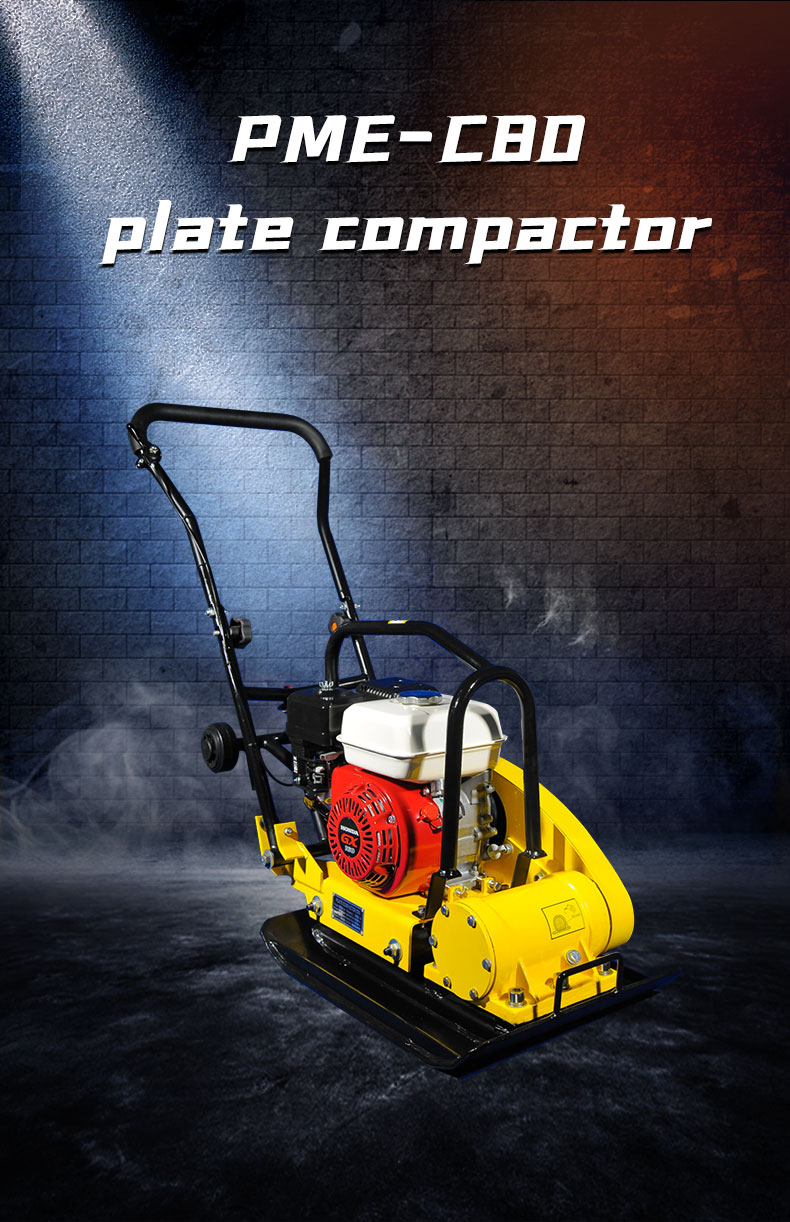
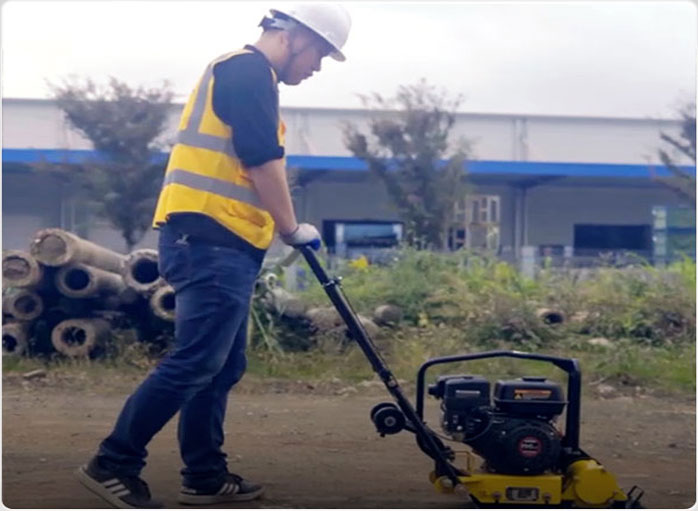
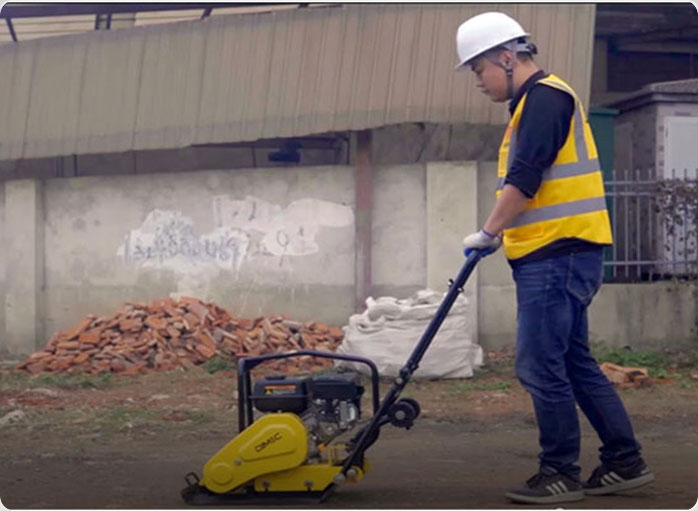
Principales spécifications
| Modèle | Machine Compacteur PME-C80 |
|---|---|
| Moteur | Honda GX160 |
| Type de moteur | Moteur à essence / moteur diesel refroidi par air, monocylindre, 4 temps |
| Fréquence [VPM] | 4200 |
| Force centrifuge [KN] | 15 |
| Taille de la plaque (LxL) [cm] | 64x42 |
| Profondeur maximale de compactage [cm] | 35 |
| Vitesse de déplacement [m/min] | 25 |
| Angle d'inclinaison max. | 20° |
| Poids net / poids brut [kg] | 80/85 |
| Emballage (LxLxH) [cm] | 75x46x58 |
AVANTAGE

Faible vibration et fonctionnement confortable
Système d'amortissement robuste qui améliore efficacement le confort d'utilisation en réduisant les chocs sur les bras.
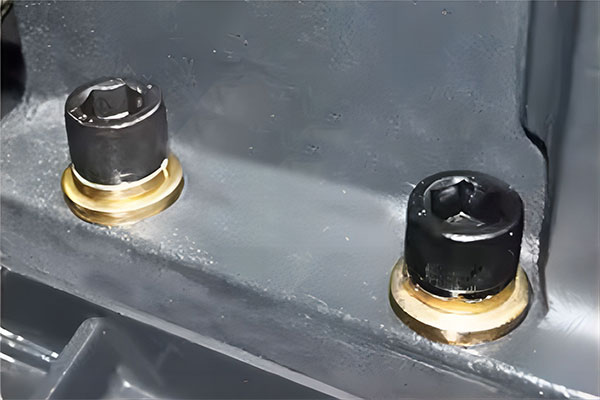
12.9 Boulons de qualité
Boulons à haute résistance d'une longévité exceptionnelle, assurant une fixation fiable même sous pression intense et dans des conditions exigeantes.

Cadre de moteur à haute résistance
Le matériau du tube d'acier épaissi a une force de soutien importante et une capacité stable de supporter la gravité.

Moteur de marque à forte puissance
Moteurs de marque réputée Honda, Robin, Loncin, peu bruyants, nécessitant peu d'entretien et consommant peu.
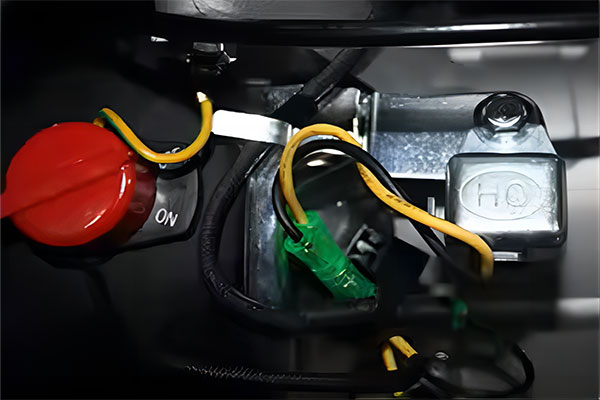
Capteur de niveau d'huile bas
La technologie avancée du capteur de niveau d'huile garantit la protection automatique du moteur en empêchant le fonctionnement lorsque le niveau d'huile est insuffisant, ce qui prolonge la durée de vie du moteur.
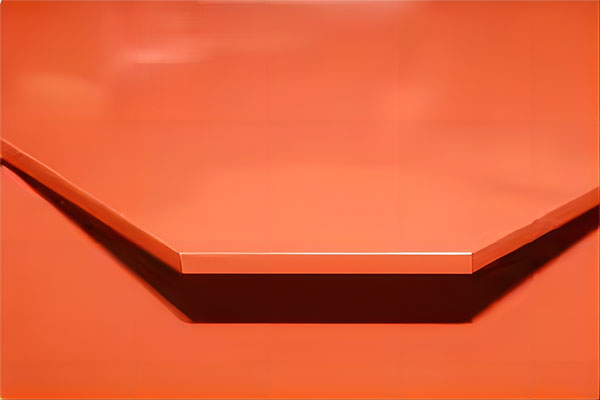
Processus de pulvérisation professionnel
Utilise des techniques de pulvérisation avancées pour produire un revêtement lisse et uniforme qui résiste à l'usure, à la corrosion et à la décoloration, garantissant une protection durable et un attrait esthétique.
QUESTIONS ET RÉPONSES
A plate compactor is typically used for smaller areas and granular materials, using vibration to compact. A road roller, on the other hand, is used for large surfaces like roads and relies on its weight, often combined with vibration, to compact soil, gravel, or asphalt.
Not all compactors are suitable for every soil type. For example, jumping jack compactors are better for cohesive soils like clay, while plate compactors are more effective on granular soils.
Regular maintenance is crucial. It’s recommended to service your compactor according to the manufacturer’s guidelines, typically after a certain number of operating hours.
Signs that your compactor may need repair include loss of vibration, unusual noises, engine problems, and visible wear on the compaction plate or drum.
Modern compactors are designed to be more energy-efficient and environmentally friendly, with features that reduce emissions and noise. Additionally, trash compactors help reduce the volume of waste, promoting recycling.
Autres produits similaires
Moteur diesel à deux cylindres
Rouleau vibrant PME-R800
Concrete Compactor PME-CY80
Vibrateur à béton
Ponceuse de sol
Compacteur à plaque PME-C50
Plus de 20 ans d'expérience
Fabricant de machines de construction
Fabricant professionnel de petites machines de construction, les principaux produits comprennent le compacteur à plaque, pilon de bourrage, road roller,scie à sol, concrete vibrator, generator etc.
Compacteur à plaque avant
Dans le domaine de la construction et de l'aménagement paysager, disposer des bons outils peut faire toute la différence. L'un de ces équipements indispensables est le compacteur à plaque avant.
Que vous travailliez sur des projets de pavage, d'aménagement paysager ou de fondation, il est essentiel de savoir comment utiliser et entretenir cette machine.
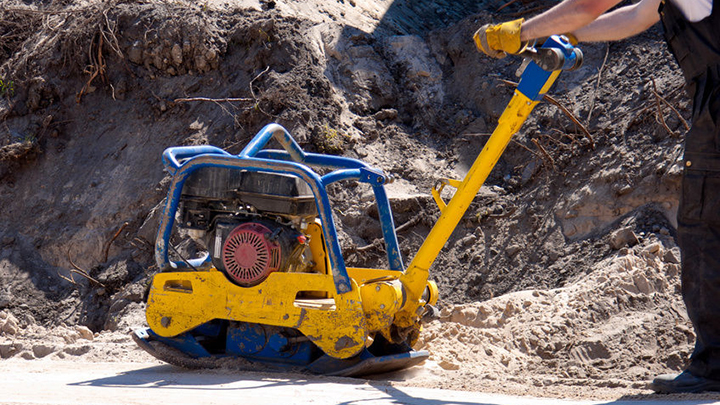
What is a Machine Compactor and How Does It Work?
Introduction
Have you ever wondered how roads and construction sites maintain such firm and stable surfaces? Or how waste is compressed to create more space in dumpsters? The answer often lies in the use of machine compactors, powerful tools that play a crucial role in various industries, from construction to waste management. In this article, we’ll dive deep into the world of machine compactors, exploring what they are, how they work, and why they’re so essential.
What is a Machine Compactor?
A machine compactor is a piece of equipment designed to compress materials, reducing their volume and making them more stable and solid. Whether you’re dealing with soil, asphalt, concrete, or waste, compactors help achieve the desired density and firmness needed for construction, road building, or waste disposal. These machines come in various forms, each suited to different tasks and materials.
History of Machine Compactors
The concept of compaction dates back to ancient times, where rudimentary tools like wooden tampers were used to firm up soil for building foundations. However, the evolution of machine compactors began in the late 19th and early 20th centuries, coinciding with the rise of industrialization. Early steam-powered road rollers marked the beginning of mechanized compaction, and over the decades, technology has advanced to include a wide range of modern compactors equipped with engines, hydraulics, and sophisticated control systems.
Types of Machine Compactors
Machine compactors come in several types, each designed for specific applications. Let’s explore some of the most common ones:
Compacteurs à plaques
Plate compactors are widely used in small to medium-scale construction projects. They feature a heavy, flat plate that vibrates as it moves over the material, compacting it through a combination of force and vibration. These compactors are ideal for compacting granular soils, asphalt, and paving stones.
Compacteurs à piston
Jumping jack compactors, also known as rammers, are more specialized. They have a smaller footprint and are particularly effective in compacting cohesive soils, like clay, where a higher impact force is required. The compactor’s name comes from its vertical movement, resembling the action of a jumping jack.
Road Rollers
Road rollers are perhaps the most iconic type of compactor, often seen in large construction and road-building projects. These machines feature large, heavy drums that roll over the material, compressing it through sheer weight and sometimes vibration. Road rollers are used for compacting soil, gravel, asphalt, and other large surfaces.
Trash Compactors
Trash compactors are used primarily in waste management to compress and reduce the volume of waste materials. These machines can be found in both residential and industrial settings, helping to minimize the space taken up by waste and making it easier to manage and dispose of.
How Does a Machine Compactor Work?
The basic working principle of a machine compactor revolves around the application of force to reduce the volume of the material being compacted. This force can be generated by weight, vibration, or both, depending on the type of compactor.
Force and Vibration: In most compactors, the combination of force and vibration is key to achieving effective compaction. The force helps to push the particles of the material closer together, while the vibration reduces friction between the particles, allowing them to settle into a more compact arrangement.
Operation Differences: For example, a plate compactor uses rapid vibrations to compact loose materials, making it suitable for paving and landscaping. On the other hand, a road roller relies more on its weight, often aided by vibration, to compress large areas of soil or asphalt.
Components of a Machine Compactor
To understand how a machine compactor functions, it’s helpful to look at its main components:
- Engine: Powers the compactor, providing the necessary force and energy for operation.
- Compaction Plate or Drum: The part that directly contacts the material being compacted. Its size and shape vary depending on the type of compactor.
- Vibration Mechanism: Generates the vibrations that help compact the material, usually through an eccentric rotating mass.
- Control Systems: Allow the operator to manage the machine’s speed, direction, and compaction force, ensuring the job is done effectively and safely.
Applications of Machine Compactors
Machine compactors are versatile tools used in a variety of applications:
Industrie de la construction
In construction, compactors are indispensable for preparing foundations, roads, and other structures. They ensure that the soil or material is dense and stable enough to support heavy loads.
Soil and Asphalt Compaction: For road construction, compactors are used to compact soil, gravel, and asphalt, creating a solid base and a smooth surface.
Concrete Preparation: Before pouring concrete, compactors are often used to prepare the ground, ensuring it’s firm and level.
Waste Management
Trash compactors help reduce the volume of waste, making it easier to handle and dispose of. They are commonly used in residential buildings, commercial establishments, and industrial facilities.
Aménagement paysager
In landscaping, compactors are used to compact soil and other materials, creating stable bases for patios, walkways, and other outdoor structures.
Benefits of Using Machine Compactors
Using machine compactors offers several benefits:
Increased Efficiency: Compactors make it easier and faster to achieve the desired material density, increasing productivity on construction sites and in waste management.
Improved Material Stability: Compacted materials are more stable and less likely to shift or settle over time, which is crucial for building durable structures.
Reduction of Voids: Compaction helps eliminate voids and air pockets in the material, which can weaken it and lead to structural failures.
Considérations de sécurité
Operating a machine compactor safely requires adherence to certain guidelines:
Operating Guidelines: Always follow the manufacturer’s instructions and ensure the operator is properly trained.
Common Hazards: Be aware of potential hazards like machine rollovers, flying debris, and noise. Use personal protective equipment (PPE) and maintain a safe working environment to minimize risks.
Maintenance of Machine Compactors
Regular maintenance is key to keeping a machine compactor in good working condition:
Inspection and Servicing: Regularly inspect the machine for wear and tear, and service it according to the manufacturer’s schedule.
Troubleshooting: Address common issues like engine problems, vibration loss, or hydraulic failures promptly to avoid downtime.
Extending Lifespan: Proper maintenance, such as keeping the machine clean and storing it correctly, can significantly extend its lifespan.
Choosing the Right Machine Compactor
Selecting the right machine compactor depends on several factors:
Taille du projet : Consider the scale of your project when choosing a compactor. Larger projects may require heavier, more powerful compactors.
Material Type: Different materials require different compaction methods. For example, granular soils are best compacted with a plate compactor, while cohesive soils may need a jumping jack.
Features and Specifications: Compare features like compaction force, vibration frequency, and plate or drum size to find the best machine for your needs.
Conclusion
Machine compactors are vital tools in construction, waste management, and landscaping, providing the necessary force to compact materials efficiently. Understanding the different types of compactors and their applications helps ensure that you choose the right machine for the job, improving productivity and results. As technology advances, compactors are becoming more efficient, environmentally friendly, and easier to operate, making them an essential part of modern industrial practices.
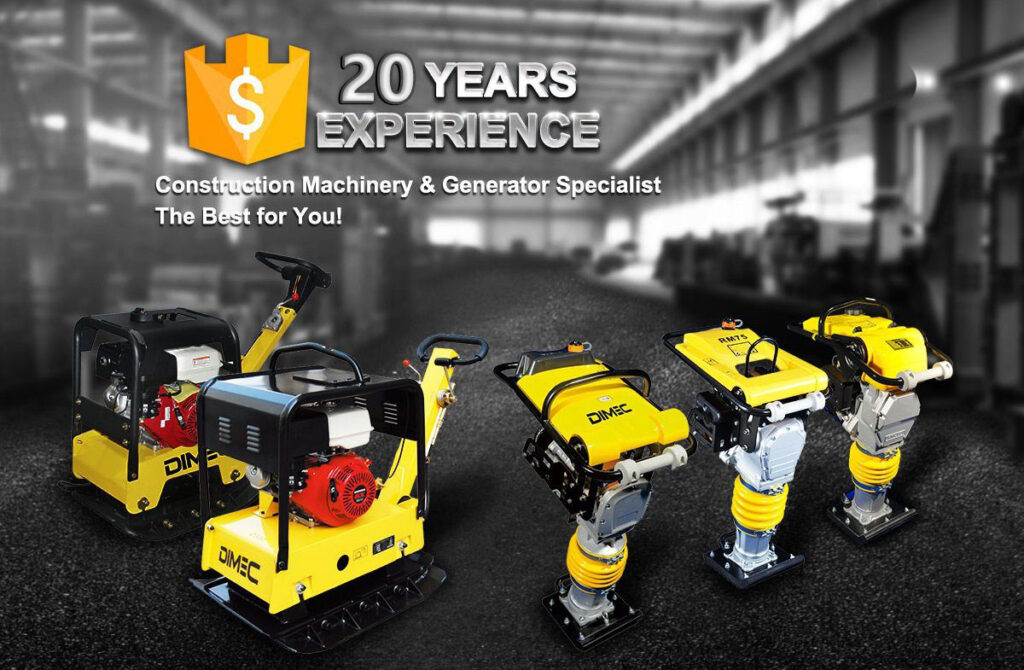
À propos de nous
Wuxi Pinnacle Mechanical Equipment Co, Ltd. (PME) En tant qu'entreprise spécialisée de premier ordre, nous servons des clients du monde entier. PME se spécialise dans la production de compacteurs à plaque, de pilonneuses, de scies à sol et de vibrateurs à béton pour l'industrie mondiale de la construction. Nous produisons également des moteurs, des générateurs et des pompes à eau. Les forces de PME proviennent de notre équipe solide et de nos ressources abondantes.
Nous disposons de lignes de production et d'assemblage complètes pour différentes machines. Une équipe d'ingénieurs en chef, de techniciens supérieurs et d'inspecteurs du contrôle qualité est équipée de divers équipements de finition, d'inspection des pièces détachées et de test des produits, afin de garantir la production et l'innovation. Ainsi, nous pouvons contrôler chaque étape de la production, de l'usinage de finition des pièces détachées à l'assemblage des produits, en passant par la découpe et le soudage des plaques d'acier et la pulvérisation de la peinture. Il en résulte un contrôle efficace de la qualité des produits.
Forte de plus de 20 ans d'expérience en matière d'exportation, PME exporte vers plus de 68 pays et régions, dont l'Amérique du Nord, l'Amérique du Sud, l'Europe, l'Asie du Sud-Est, le Moyen-Orient et l'Afrique. Nous formons également des sociétés stratégiques avec de nombreuses entreprises multinationales.
Salon de l'usine
Laissez notre expertise en matière de compacteurs à plaques sur mesure faire passer vos projets à la vitesse supérieure.
Pourquoi nous choisir ?
Fabricant professionnel de machines de construction avec service OEM
Nous sommes un fabricant de premier plan dans l'industrie des machines de construction, offrant des services de premier ordre en tant que fabricant d'équipement d'origine (OEM). Notre engagement en faveur de l'innovation et de l'ingénierie de précision garantit que nos machines répondent aux besoins spécifiques de nos clients, en fournissant des solutions personnalisées qui améliorent l'efficacité et la performance sur le chantier.
20 ans d'expérience en matière de production et d'exportation
Avec deux décennies d'expérience dans la production et l'exportation, nous nous sommes forgé une solide réputation en fournissant des équipements de construction fiables et de haute qualité dans le monde entier. Nos connaissances approfondies et notre expertise dans l'industrie nous permettent de comprendre les défis uniques des différents marchés, ce qui garantit que nos produits sont adaptés pour répondre aux normes mondiales.
Plus de 20 types d'équipements de chantier sont disponibles pour la sélection
Nous proposons une gamme diversifiée de plus de 20 types d'équipements de chantier, répondant aux différents besoins de l'industrie. Des machines lourdes aux outils spécialisés, notre gamme de produits est conçue pour soutenir chaque phase de la construction, offrant à nos clients la flexibilité de choisir l'équipement approprié pour leurs projets.
10 ans et plus de contrôle de la qualité des produits
Nos processus rigoureux de contrôle de la qualité ont été affinés pendant plus de 10 ans, garantissant que chaque pièce d'équipement que nous produisons répond aux normes les plus élevées. Notre équipe dédiée au contrôle de la qualité surveille méticuleusement chaque étape de la production, garantissant que nos produits offrent des performances et une durabilité constantes sur le terrain.
8+ ans d'expérience des travailleurs qualifiés
Notre équipe est composée de travailleurs hautement qualifiés ayant plus de 8 ans d'expérience dans l'industrie des machines de construction. Leur expertise et leur dévouement se reflètent dans la précision et le savoir-faire de nos produits, garantissant que chaque détail est exécuté à la perfection.
8 ateliers, 12 lignes de production
Avec 8 ateliers ultramodernes et 12 lignes de production, nos capacités de fabrication sont conçues pour répondre efficacement aux demandes à grande échelle. Nos installations de pointe nous permettent de maintenir un processus de production rationalisé, garantissant la livraison en temps voulu de machines de haute qualité à nos clients dans le monde entier.
Une efficacité supérieure dans la construction grâce à nos machines conçues par des experts
Découvrez un monde d'équipements de construction avancés conçus pour répondre aux exigences des chantiers modernes. Avec 20 ans d'expérience dans l'industrie et un engagement de qualité, nos machines sont conçues pour augmenter la productivité et assurer la fiabilité de chaque projet. Explorez notre gamme diversifiée et découvrez la différence des solutions conçues avec précision.




